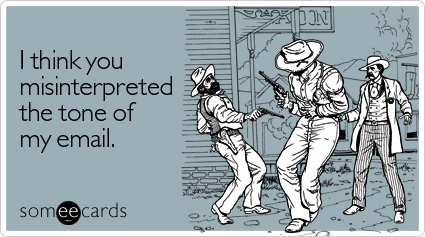There’s been quite a firestorm on twitter today after a certain publisher sent a letter with a new set of requirements to book bloggers about how to request and review books. Many book bloggers felt that the letter did not respect them or what they do, and were pretty angry about it. I’m not going to name that publisher or go into detail about what was in the letter, but I do think that this is a good opportunity for all of us who work together promoting reading in various ways to reflect a little on where the publisher/blogger relationship is at and what can be done to improve it.
Here are some lessons I think publicists like me can learn by what happened today:
1. Book bloggers are not employees. Reviewing books is not their full-time job. Receiving a free review copy does not OBLIGATE them to review something, or to review something in a particular time frame.
2. Many book bloggers schedule out their reviews months in advance. If you want something to run at a certain time, be sure to give bloggers a few months of notice. And even then, bloggers have lives in which Other Things are going on. So asking for reviews to run at a certain date should always be done with the understanding that sometimes it just may not happen.
3. Reviews that are not posted during the first week of release can still be good publicity! No one wants to read 14 reviews of the same book on the same day. A new review of a book that’s already been out for a while can still pique readers’ interests – and is still a valuable contribution from the reviewing blogger.
4. Not every book is for every person. Sometimes there’s no way to know when you request a book for review that it’s just not your thing. If a blogger chooses to refrain from writing a negative review about a book, that should be respected by us as publishers.
And here are a few things that book bloggers can take away:
1. Be mindful with your requests. Review copies cost a lot of $$ and ARCs cost even more (strange, but true) so try to stick to asking for books you want to read, and have time to read. If you don’t think you’ll be able to read a book by its release date but still want to read it, borrowing a copy later from the library may be a better option. And pretty please, if you accept e-galleys but we’re still sending you hard copies, let us know! It makes a big difference for us cost-wise.
2. Be communicative. Don’t assume publishers will find your review on their own – as anyone who’s used google alerts knows, it’s far from 100% accurate. Publishers TRULY appreciate when you send a link to your review (or submit it via Netgalley, if you got your galley that way) so we know we haven’t been sending books into a big black hole. Also, if you decide to take a vacation from blogging, send us an email so we don’t keep mailing you books.
3. If you don’t like a book, be honest. If a publisher checks in about a review and you didn’t like the book, just tell us so. It may help us to match you with better books in the future, and we’ll understand why you asked for it but never reviewed it.
4. No blogger is obligated to review a book in a certain time frame, but there’s a reason publicists sometimes prefer for reviews to run around publication date. Often books only stay on the shelves of stores like B&N for a few weeks before copies are shipped back to publishers, so those first few weeks are crucial to determining if and how long a book will stay on the shelf. If you really LOVE a book and want to support it, reviewing it around the time it’s released can help make sure it gets noticed during that crucial window. Think of it sort of like a window of time in which your review becomes extra-influential.
So, that’s what I’ve got. Bottom line: Publishers, be respectful of bloggers’ time and energy. Bloggers, be respectful of publishers’ limited resources. Everyone: just be respectful of each other. We are all book people at heart.









